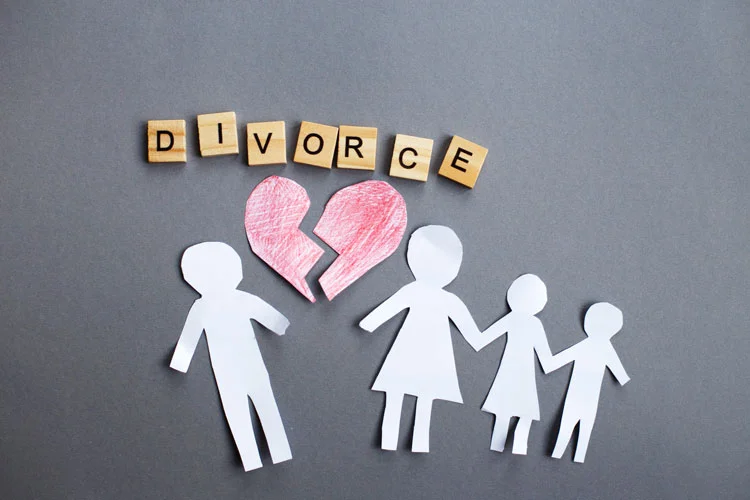The global nature of today’s world and reduced airfares make for the high number of international marriages that you see today. However, the long-distance takes its toll sooner or later, resulting in a divorce.
Going through a divorce is never easy. In more than one way, it is messy, even more so if it is international. The process of obtaining an international divorce is complicated. What makes it difficult is that divorce and child custody laws are not the same as in other countries. This results in a lot of child abductions and international child custody disputes.
In this article, we discuss the process of international law divorce and the laws governing child custody.
Are International Marriages Legal?
International marriages are legal in the US as long as it is legal in the country where they take place. Hence, the validity of an international marriage depends on the laws of the host country. However, to be recognized in the US, you have to submit specific documentation. For more details contact the office of attorney general in your state.
How does International Law Divorce Work?
International divorce is when you separate in a country where you do not have a permanent home. This happens due to any of the following scenarios:
- You work abroad
- You and your (ex) spouse live in different countries
- You and your (ex) spouse have different nationalities
In this case, you do not have to divorce in the country you were married in. Or in the country, you were living when you decided to divorce. You can divorce in the country you (or your spouse) are living in right now. However, you and your (ex) spouse should be recognized as married couples.
How do I Divorce My International Spouse?
While you can divorce your international spouse, the process is quite complicated. The laws that govern your divorce change depending on the state you are in right now. The first step is to notify your (ex) spouse and get their signature acknowledging the receipt. If they live overseas, the legal process because a little more complex. Here are the steps you undertake for a person who is out of the country.
- Get the forms from a family court and complete the petition. Then, file them in the local court. Ensure that the petition covers the separation of assets, child custody, visitation, and child support.
- Next, you need to serve your (ex) spouse in their country of residence. You can get the embassy’s help in appointing a process server. You can also serve by mail or by publishing in a local newspaper. Ensure that you have proof of delivery to show in court.
- Your spouse can also waive being served (which happens during an uncontested divorce).
- Once served, you can continue with the divorce. If it’s a contested divorce, your (ex)spouse gets time to address their concerns.
- If your (ex) spouse doesn’t reply to the court document, you’d have a waiting period. Once the waiting period is over, you can go ahead with the divorce.
Keep in mind that divorce laws vary depending on the state. Ensure that you understand the laws and where you can file for divorce. It also dictates how and when to serve your ex-partner.
Who Gets the Custody of a Child after Divorce?
Generally, both parents share the child custody after a divorce. However, in rare circumstances, the court grants primary custody to one parent. For example, this happens during an international divorce when both the parents live in different countries. In this case, both the parents do not share equal custody. Instead, one parent, often the mother, gets sole custody. They also have the responsibility of raising the child.
What Laws Govern Child Custody Disputes?
Not all divorces are amicable, especially when it comes to international divorce. Often, they have prolonged international child custody issues. Some of the most complex custody issues revolve around the wrongful removal of the child from its home country. Or they are retaining the child in a foreign country without the consent of the other parent.
In both these cases, the wronged parent could invoke the Hague Convention Treaty to help rectify the situation. The convention protects the right of a child taken from parent’s custody.
Hague Convention
The USA signed the Hague Convention on the Civil Aspects of International Child Abduction in 1980. It is an international treaty enacted to deal with the rising problem of international child abductions. The Convention aims to deter international child smuggling. Its primary goal is to provide a peaceful means to bring the children back to their home country. It also gives a legal process for the prompt return of the kidnapped via the local courts.
The Hague Convention applies only to the countries which have adopted the treaty. And it provides remedies only if a child has been wrongfully removed from such a country. The members of the convention have agreed to abide by the Civil Aspects of the Hague Convention. At present, 92 countries have signed the treaty. However, while most countries abide by the treaty, it is not the same everywhere. Non-compliance has been an issue in Central and South American countries.
Remedies available Under Hague Convention
The Hague Convention does not provide or deal with substantive custody rights. But instead, it specializes in procedural aspects of the judicial proceedings. It also helps to return the children to the other signatory governments. When there is a violation, the parent seeking remedy, files for a custody hearing in the local court. And during the hearing, they request for the local court to invoke the Hague Convention.
The courts determine whether the countries are signators of the Convention. And then decide which country has the authority to resolve the conflict. Once invoked, the signatory states and their courts act fast and enable the return of the child. It also ensures that an action will be taken within six weeks of being invoked.
In order to invoke the Hague Convention Treaty, the parent must be able to prove that they are a habitual resident of the signatory nation where the motion was filed. They should also prove that the child was wrongfully removed to the other country.
International Custody Arrangements
Child custody arrangements are a cumulative process that dictates the rights of both parents. One of which is the child custody order which specifies the child visitation in a divorce case. It will award the custodial parent the right to make crucial decisions. The parent also has the right to have the child live with them.
Child custody arrangements may take different forms and will involve both the parents. These orders can be used when one parent does not become part of the child’s life. In this case, the child custody order also provides some parental rights without permission from the other parent. Here are a few situations when the child custody order would be beneficial:
- The other parent lives in a foreign country where it may be difficult to seek permission.
- One of the parents wishes to move to another country or state with the child.
In these cases, the parent can move to the court to change the child custody order. However, they cannot move to a different place without court approval. If they move, the courts can charge the parent with the crime of abduction under several federal laws.
Wrongful relocation generally happens when parents look to avoid their child-support obligations. Often a foreign court will refuse to execute the child custody orders when a parent relocates.
Which Country has the Jurisdiction Over the Child Custody?
The UCCJEA or Uniform Child Custody Jurisdiction and Enforcement Act dictate which country has jurisdiction over child custody. However, it can be challenging to determine which country has jurisdiction in the international custody dispute.
Foreign countries are not required to abide by the laws of the United States. If both parents do not live in the same country, the question of jurisdiction is complicated. The same factors apply when the parent living in one country has applied for custody. Factors determining the proper jurisdiction include:
- Where the parent resides
- Where child lives, attends school, and receives medical care
- The child’s age
Most likely, the foreign court has jurisdiction, and the US has no say in a child custody case. However, even American courts will defer to foreign courts if your family members are overseas.
Who is Responsible for Travel in Child Visitation?
Generally, both the parents take turns paying for visitation. International child visitation is an expensive affair and is an extraordinary situation. With the visitation costs high, you can ask the courts to factor the travel expenses into child support. You can apply to the courts to modify the child custody order to address the travel expenses. Ensure that you have the receipts and records of previous flights.
Can a Mother Take a Child to Live in the Other Country?
Unless the mother has sole custody, she cannot take the child to live in another country. If both the parents share child custody, they should consent to the child being taken out of the country. If the mother has child custody that allows the child to live with her, the situation is different. She need not seek permission from the other parent or the court.
What Happens if One Parent Takes a Child Out of Country?
Only a parent who has sole custody can take the child out of the country without the permission of the other parent. Even in this case, the parent should be able to show the custody agreement for a passport. When a parent takes a child out of state without consent, they can commit kidnapping. The parent with custody rights would then notify the police and the courts to return the child.
How Does Child Custody Work When Parents Live in Different Countries?
When the parents reside in different countries, the child custody matters are quite different than in the United States.
When parents live outside of the USA, the best option is to develop their parenting plan. Alternatively, parents can get private mediation to address the matter. A private mediator can help come up with a workable plan to share parenting time and arrange visitation.
If parents take the child out to a country that is not part of the Convention, the situation becomes much more complex. It may require private or diplomatic negotiations to resolve the international child custody dispute.
Suppose the child moves to a foreign country which is a part of the Hague Convention. In this case, then the convention becomes the foundation of the child custody case. So, the parents are bound to respect the regulations of the convention. In addition, local authorities would also try to be compliant with the convention.
If the child comes under physical or psychological harm, the judge may award custody to the peaceful parent. This may be the case even if the violent parent is a US citizen. The same goes for neglect. Again, the custody will shift to the other parent for the child’s well-being no matter the country.
Conclusion
Divorce is ever easy, especially when it comes to international law divorce. The likelihood of issues increases when both parents do not live in the same country. These international child custody disputes often lead to one parent abducting the child. In some cases, parents may also try to obtain custody via a legal system of a country not a part of the Hague Convention.
International child abduction is a delicate situation. Care must be taken to safeguard the best interest of the child. If a parent takes the child from their habitual residence, they violate the custody right. And must be returned to where the child was habitually resident, immediately.
However, if the child has settled in their new home, the courts may not facilitate the child’s return. In the same way, if the return puts them at grave risk, the courts may decline to return them. Likewise, the court may rule against the return if it is not in the child’s best interests.
In any case, contact an experienced family law attorney for legal advice. Wait until you establish an attorney-client relationship to share any confidential information. You may also want to have a law firm on retainer for any legal advice. One such law firm that comes highly recommended is Randle, Palmer & Associates. They have many years of experience in their practice of adoption and parental rights and can assist you with any issues or concerns you may have. Contact Randle, Palmer & Associates for your free consultation today!















